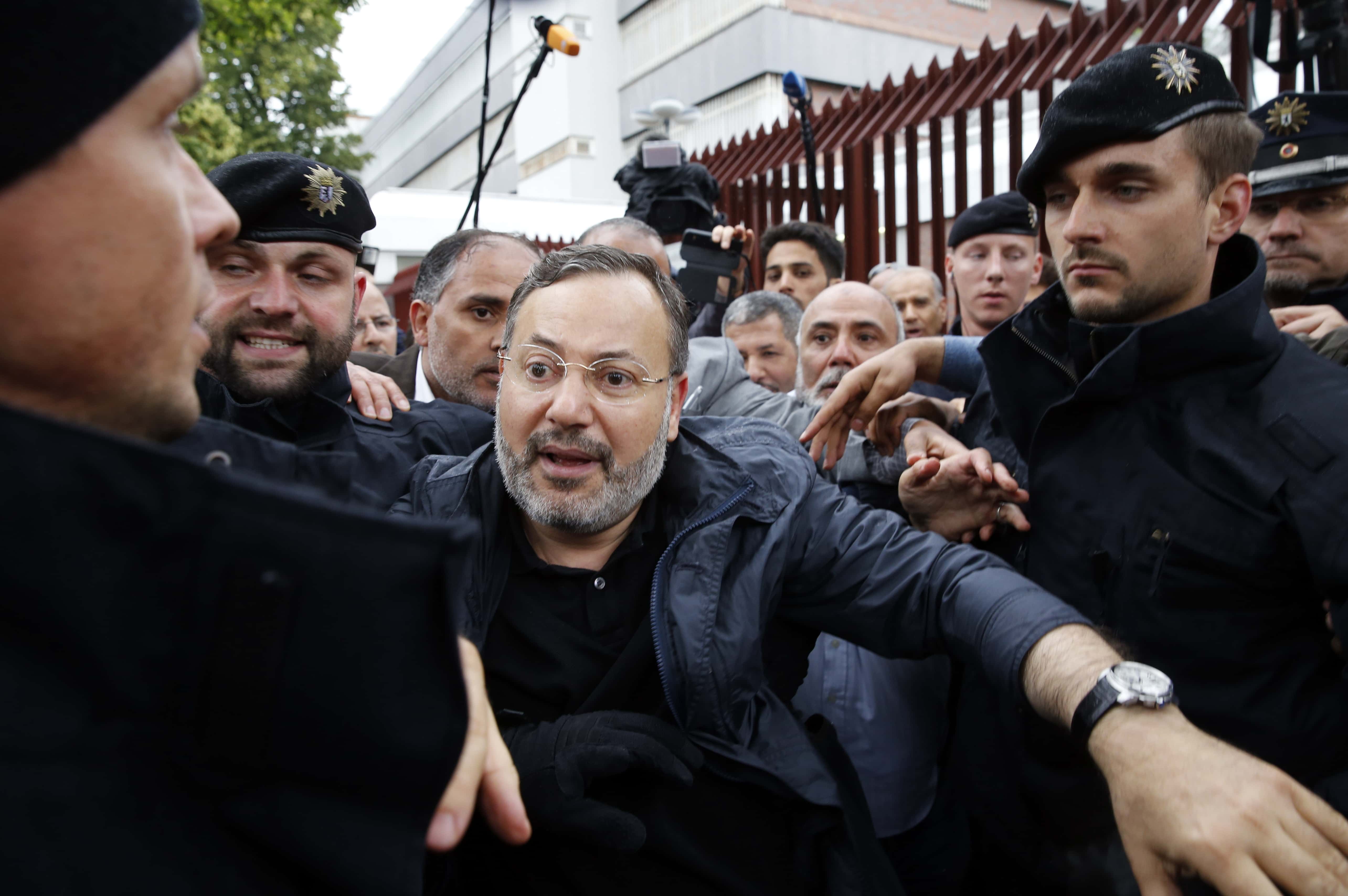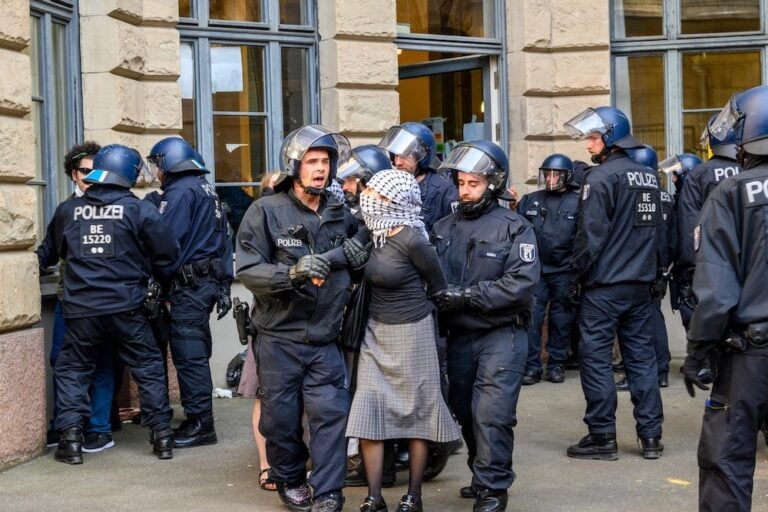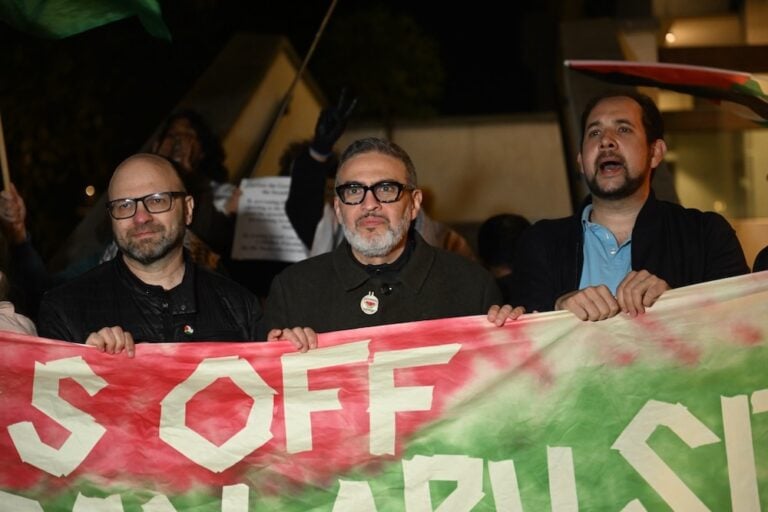“German authorities should have been clear from the start that Ahmed Mansour risks serious violations of his human rights if he is sent to Egypt,” said Wenzel Michalski, Germany director of Human Rights Watch.
This statement was originally published on hrw.org on 24 June 2015.
German authorities should urgently investigate the detention of the Egyptian journalist Ahmed Mansour in Berlin, Human Rights Watch said today.
German authorities have revealed few of the details that led to his detention, but government spokesmen said that both the Foreign Ministry and the Federal Justice Office approved a request by Egyptian authorities to detain Mansour with a view to extradite him to Egypt. They apparently approved the request despite the high risk that Mansour would face serious due process violations if extradited to Egypt. Interpol, the International Criminal Police Organization, had previously rejected a request by Egypt to issue a “red notice” asking countries to arrest and extradite Mansour.
“German authorities should have been clear from the start that Ahmed Mansour risks serious violations of his human rights if he is sent to Egypt,” said Wenzel Michalski, Germany director of Human Rights Watch. “Members of parliament should press the government to investigate the case and make sure that proper safeguards are in place to make sure that nothing like this happens again.”
The German federal police did not state publicly the full nature of the charges or warrant against Mansour after arresting him in Berlin-Tegel Airport on June 20, 2015, as he attempted to board a flight to Qatar. Mansour, a journalist for the Qatar-based Al Jazeera Arabic television network, had been in Germany on an assignment for the network.
A judge apparently approved the temporary detention of Mansour on June 21, but on June 22 German prosecutors announced they did not support the continuation of the extradition case against Mansour and ordered his release.
German government spokesmen said that the German authorities were acting on the request of Egyptian authorities for Mansour’s extradition. Egyptian authorities had issued an arrest warrant related to Mansour’s conviction by an Egyptian court, in absentia, on charges of participating in the February 2011 illegal detention, torture, and sexual abuse of a lawyer whom protesters in Tahrir Square had seized during the mass uprising against then-president Hosni Mubarak. The protesters had accused the lawyer of being a government security agent.
Mansour, who denies the accusations, was convicted in October 2014 alongside a leading Muslim Brotherhood member, Mohamed al-Beltagy; a former judge and member of parliament, Mahmoud al-Khodeiry; a Brotherhood member and former youth minister, Osama Yasi; pro-Brotherhood preacher Safwat Hegazy; and three former Brotherhood-affiliated members of parliament.
Mansour’s arrest followed a visit to Germany by President Abdel Fattah al-Sisi of Egypt earlier this month. Sisi was defense minister in July 2013 at the time of the military’s removal of Mohamed Morsy, Egypt’s first freely elected president, and subsequent mass killings of protesters. Under Sisi’s rule the Egyptian authorities have carried out a large-scale crackdown on opposition groups across the political spectrum, including the Muslim Brotherhood.
Prosecutors filed the case against Mansour and the Brotherhood members in November 2013, after Morsy’s removal. In March 2014, another judge ordered all of Mansour’s assets seized, according to Mansour. Mansour is frequently portrayed in Egypt as sympathetic to the Brotherhood, and Egyptian media have reported that he is under investigation in numerous cases for his alleged ties to the group.
On October 21, 2014, according to emails provided to Human Rights Watch by Mansour’s legal team, Interpol informed Mansour’s lawyers that Egypt had requested Interpol issue a “red notice” – a request to Interpol member states to arrest a named individual with a view to his extradition – against Mansour, but that Interpol had declined because “the request did not meet Interpol’s rules.” Interpol’s charter states that “It is strictly forbidden for the Organization to undertake any intervention or activities of a political, military, religious or racial character.”
Human Rights Watch has documented numerous serious due process violations in Egypt’s criminal justice system, since 2013, including mass trials in which prosecutors and judges rely wholly on the evidence of national security agents and make no effort to assess individual culpability, flouting both Egyptian and international law. Human Rights Watch has also documented the dangerously overcrowded conditions in Egyptian detention facilities that have arisen since the authorities conducted a mass arrest campaign following Morsy’s removal. According to credible counts by Egyptian rights organizations at least 124 people have died in detention since 2013.
“Germany should make crystal clear that human rights must not be trumped by other interests with the Egyptian government,” Michalski said. “A proper investigation into the arrest of Ahmed Mansour is an important step toward more transparency.”



